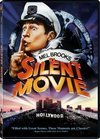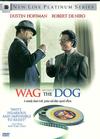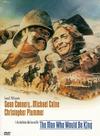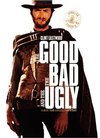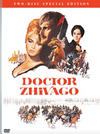
Cast: Jack Lemmon (Hildy Johnson), Walter Matthau (Walter Burns), Susan Sarandon (Peggy Grant), Vincent Gardenia ('Honest' Pete Hartman), Harold Gould (Mayor Herbie), Austin Pendleton (Earl Williams- the guilty, but insane), and Carol Burnett (Mollie Malloy)
Director: Billy Wilder
Genre: Comedy/ Drama
Before Jack Lemmon and Walter Matthau were playing “Grumpy Old Men”, they were playing rough-as-nails journalists who kept on top of the big news despite the important things of life. They both were so natural for a film like this. The pace of the film was as hard and tough as the journalists themselves. The tension and emotions of the press office came right out of the screen. The film had a taste of Neil Simon perhaps due to the fact that both are often seen in his films. Lemmon and Matthau were perfect for the roles. The two, like all the other movies they did together, played so well off of each other. Matthau especially played the perfect, model reporter who was as gruff and hardcore as any serious news story a reporter like him could cover. The role suited him to the cuff! Lemmon was entertaining to watch and played more off of Matthau that he could have actually been a real reporter as well. With Lemmon, it was fitting that he played the retiring reporter. Susan Sarandon played a wonderful girlfriend to “retiring” Lemmon and, even most enjoyable, was Carol Burnett who played the ill-reputed Mollie Malloy. Hildy Johnson is the best reporter for the Chicago newspaper, the Examiner, during the roaring 20’s. He quickly realizes that he would be much happier married and has firmly decided to quit his job and marry his sweetheart, Peggy. This is bad news to his boss Walter Burns. Burns quickly decides to execute his own plans to get Johnson to stay with the paper for just a little while longer and cover the execution of the guilty (but insane) cop-killer, Earl Williams. Johnson refuses but, conveniently for Burns, Williams happens to escape prison at the same time. With this breaking news at hand, and with a snot-nosed, “piss and vinegar” college kid planted to take Johnson’s place, Johnson feels compelled to at least help with the story a bit “to do Burn’s a favor.” Nobody knows what is going to happen next as events unpredictably go in all directions- the Neil Simon feel. The film is a brilliant comedy and can be called nothing but a classic. Besides the superb casting, the dialogue was perfectly timely. It was well scripted so as to be another character. Matthau and Lemmon were so well together that they truly sit among the ranks of genius comedy duos like Laurel and Hardy, Abbott and Costello, Martin and Lewis. This was not a silly sort of comedy but a matter-of-fact comedy that can only laughed at from an outside perspective. If the characters where looking at the situation from the audience perspective, they would be laughing to. This was the third adaptation of the play. All the sharp profanities set this film apart from the others. They came directly from the play and whether profinity bothers you or not, well...they're playing journalists after all. Atleast playing writers, the characters know how to use them.

